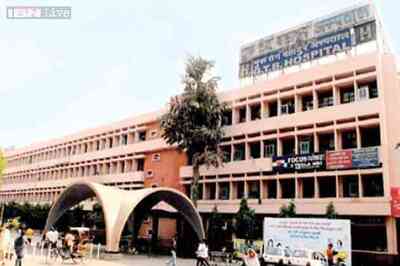
views
Bengaluru: About a month later, Sri Lanka will vote to elect its next president. For the first time in the history of this emerald isle in the Indian Ocean, no sitting president or prime minister or leader of the opposition is seeking an election to the highest office in the country.
Although there are 35 contestants in the fray, the main fight is between Housing Minister and deputy leader of the ruling United National Party (UNP) Sajith Premadasa and former defence minister Gotabaya Rajapaksa of the Sri Lanka Podujana Peramuna (SLPP) and would be a fierce one (like the election of 2015).
At that time, the UNP had joined hands with others to defeat the authoritarian President Mahindra Rajapaksa and succeeded in the seemingly impossible task. Now, the UNP is fighting a similar battle to put a brake to the entry of the Rajapaksa clan, whom some UNP leaders call “barbarians at the gate”.
When Prime Minister Narendra Modi made his first visit to Sri Lanka after an emphatic win in the Parliament elections, the 52-year-old Premadasa was made his “minister in waiting”. Some newspapers predicted his imminent elevation as president.
Sajith, son of assassinated president Ranasinghe Premadasa, is a graduate from the London School of Economics (LSE) and a post-graduate in international relations from the University of Maryland. Unlike his father, who came from a poor area in Colombo, Sajith grew up in a well-off family. Though he has the right pedigree, connections, legacy, education and wealth, Sajith stays away from Colombo elites and portrays himself as a man of the masses.
A quick learner, Sajith is known to have achieved anything he sets his eyes on. Pushing everyone in the race aside, Sajith has ensured that the UNP nominates him as its candidate in the upcoming election.
He is aware that Gotabya a strong contender and to counter his national security campaign, Sajith has declared that former army chief field marshall Sharath Fonseka would be his national security chief if he is voted to power. The dreaded Liberation Tigers of Tamil Eelam (LTTE), led by Velupillai Prabhakaran, was defeated by the Gotabaya-Fonseka combine in 2009.
However, rampant corruption and massive abuse of human rights during the Gotabaya’s elder Mahindra Rajapaksa government between 2005 and 2015 are haunting them this time. Sajith is eyeing the votes of the minorities who form 25 per cent of the island’s population. He is also hoping to get a large number of Sinhala votes to reach the half way mark.
Not taking any chances, Gotabaya has launched a high-decibel campaign against Sajith and called his party an anti-national outfit. He is also hoping to get the majority Sinhala votes and some minority backing to taste success power. The Rajapaksas have already got the backing of three Tamil parties.
The Ceylon Workers’ Congress (CWC), the party of the upcountry tea estate Indian Tamils, has also declared its support to Gotabaya, upsetting the political calculations in Colombo.
CWC leader Armugam Thondaman, grandson of CWC stalwart S Thondaman, has promised half a million tea estate votes to Gotabaya in return for a plum ministerial berth after the election.
However, locals feel that all estate Tamils are not with the CWC and even if they are with them, they would not vote en masse just because Thondaman has asked them to do so. The Tamil National Alliance (TNA), an umbrella body of several Tamil parties, is yet to make its stand clear. However, they are likely to vote for Sajith.
Two other prominent candidates in fray — Marxist Janatha Vimukthi Peramuna (JVP) chief, Anura Kumara Dissanayaka, and former army chief Mahesh Senanayake — may help decide the fate of Sajith and Gotabaya. They have already managed to create tension in both UNP and SLPP camps.
The JVP is getting a good response in upcountry Sri Lanka drawing big crowds to Dissanayaka’s rallies. A Colombo-based senior journalist feels the JVP can eat into both UNP and SLPP votes.
Senanayake is a candidate of the civil society, backed by Sarvodaya movement leader AT Ariyaratne and others. In 2015, the civil society had backed Sirisena against Rajapaksa. This time, disillusioned with both UNP and SLPP, it has extended support to Senanayake. He is also expected to dent the chances of the key players.
Taking help of modern technologies, including social media, all the four contenders are campaigning aggressively across the island nation. There are 1.60 crore registered voters in Sri Lanka and the Election Commission is expecting about 80% turnout on the polling day.




















Comments
0 comment